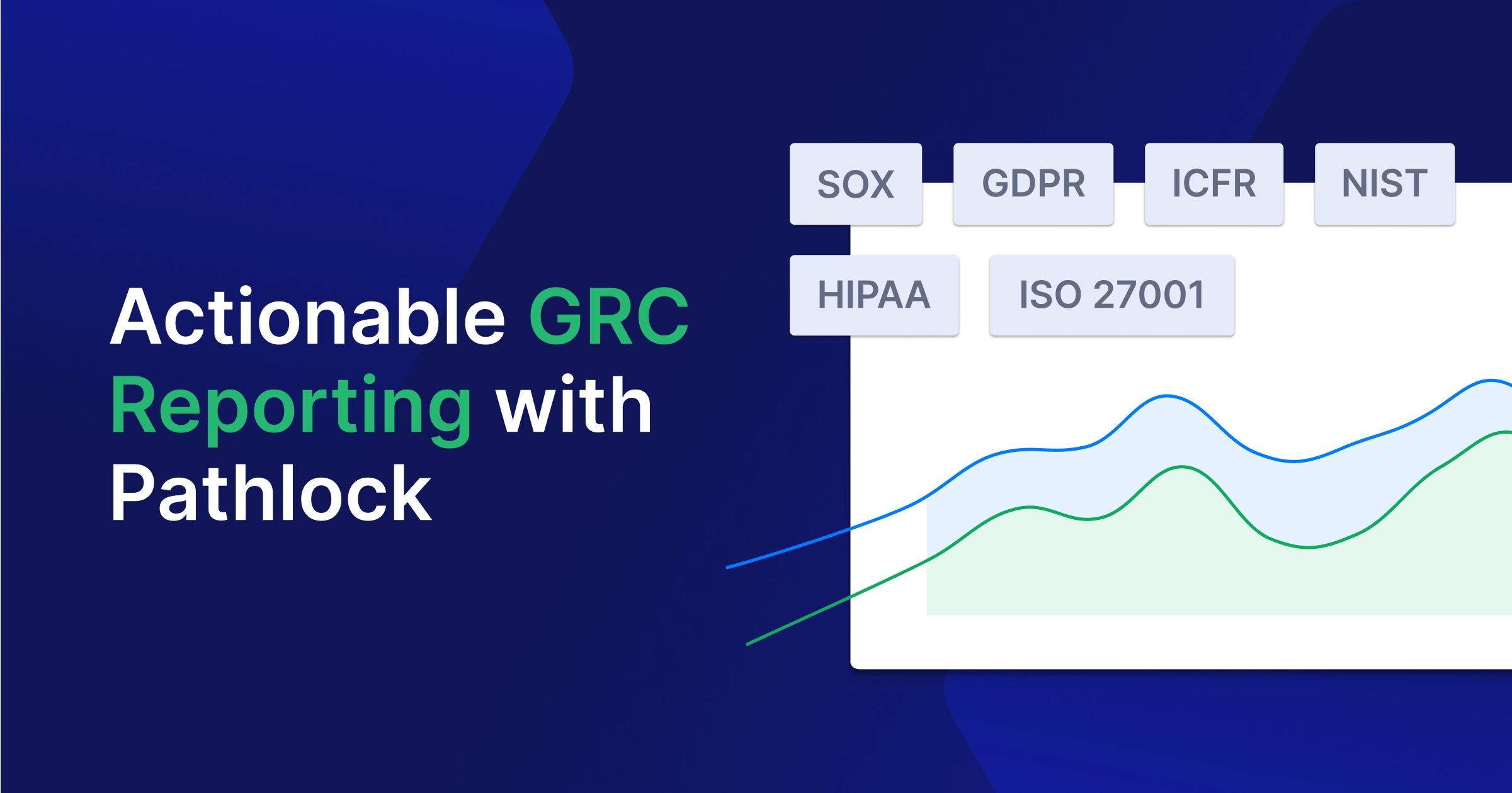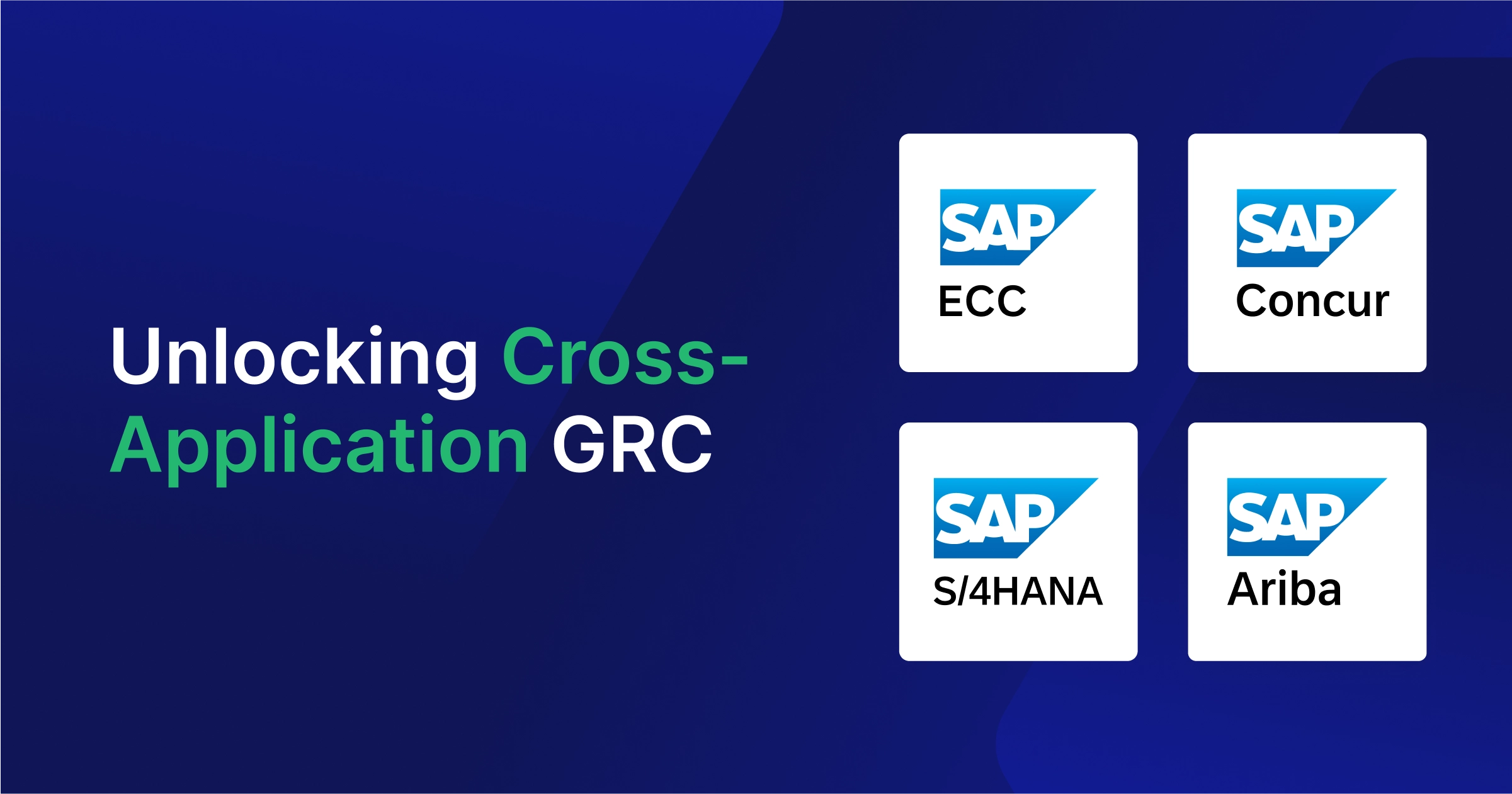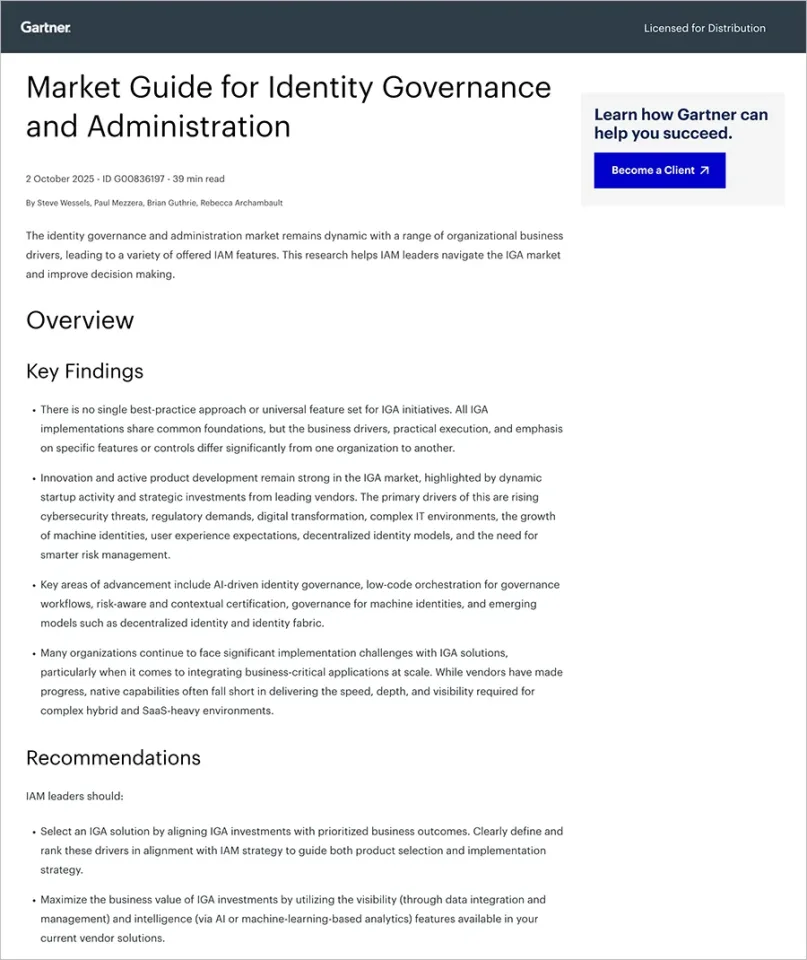What Is SAP GRC?
SAP Governance, Risk, and Compliance (SAP GRC) is a set of SAP solutions that enable organizations to meet data security and compliance standards. These solutions also provide control mechanisms to manage and mitigate risk. SAP GRC consists of four major components and multiple modules that manage risks, controls, identities, cyber threats, and international trade across the SAP ecosystem.
WATCH: Learn How to Extend Access Control to Non-ABAP Systems with Pathlock
What Are The Components Of SAP GRC?
SAP GRC features four major components that unify enterprise risk and control activities on a single technology platform. Each component has a set of modules that serve a specific function. As a whole, SAP GRC solutions give decision-makers the insights needed to adjust strategies and objectives while enabling them to predict, detect, and respond to business threats and opportunities. The four core components include:
- Enterprise Risk and Compliance
Modules: SAP Risk Management, SAP Process Control, SAP Financial Compliance Management, SAP Business Integrity Screening - Cybersecurity, Data Protection, and Privacy
Modules: SAP Enterprise Threat Detection, SAP Privacy Governance, SAP Data Custodian - Identity and Access Governance
Modules: SAP Access Control, SAP Cloud Identity Access Governance, SAP Identity Management, SAP Single Sign-On - International Trade Management
Modules: SAP Watch List Screening, SAP Global Trade Services
Enhancing Your SAP GRC Capabilities With Pathlock
While SAP GRC is a good tool to implement GRC across your SAP systems, it has certain noteworthy limitations. Pathlock’s GRC solution goes beyond your on-premise SAP ecosystem to provide unprecedented visibility into real-time authorization usage and implement fine-grained, adaptive controls across applications. Pathlock extends your already existing SAP GRC capabilities to SAP cloud, SAP Ariba, SuccessFactors, and even non-SAP applications. This significantly improves security while reducing fraud, risk, and exposure to sensitive data at an enterprise level. Pathlock can be deployed as a stand-alone solution or combined with your existing SAP GRC solution to enhance security and risk management.
Here are some of the ways Pathlock can enhance your GRC capabilities.



Extend your SAP GRC capabilities to Ariba, SuccessFactors and more with Pathlock
Get in touch with our SAP experts today.
Cross Application Connectivity
Most companies utilize multiple ERP platforms for their business operations. Though SAP GRC offers a range of modules and controls, it can be deployed only within other SAP applications. Pathlock integrates with several business applications like Salesforce, Workday, Oracle, Microsoft, Infor, or industry-related applications without any third-party connectors. Pathlock GRC seamlessly connects all your applications to a centralized system for unified GRC management.
Attribute-Based Access Controls
Many ERP applications, including SAP, offer only role-based access controls. While role-based access works well when the user connects through a secure network like the office, today’s workplace demands a more adaptive approach to access controls. Pathlock utilizes contextual attributes like location, device, time, IP address, and more to determine access risk and allows security teams to implement policies based on these attributes. Additionally, unlike role-based authorizations that are granted at access, Pathlock’s fine-grained controls go beyond the point of access down to the data field and transaction level to deliver layered security, enhanced compliance, and improved user governance across multiple applications using a single control platform.
Authorization Management
As new users are added and existing users are granted more roles, it becomes increasingly difficult to track and manage user authorizations, especially when dealing with multiple ERP applications. The result is user overprovisioning that creates greater data exposure, SoD conflicts, and overall risk. Pathlock tracks authorization usage to recommend the elimination of unused and underused authorizations and access rights, making the monitored applications safer and simpler.
User Monitoring
While SAP GRC allows you to monitor and manage identities and control who has access to information, it provides little insight into what authorized users are doing within the applications. Pathlock enables you to know what your users are doing, what tables they are accessing, what changes are being made, and by whom. It provides a detailed report of user activity data and allows you to set up alerts when sensitive information or tables are accessed.
Identification of Irregularities
The ability to continuously monitor user activity across applications also allows Pathlock to track each user to identify and compare authorizations within each department or business unit for any discrepancies. The solution sends a notification to the management team of any suspicious activity that needs further investigation. However, the lack of user monitoring in SAP GRC means that such irregularities go unnoticed.
Impact on Licensing Costs
It is well-known that SAP licenses do not come cheap. Additionally, SAP does not provide a clear view of user roles and licenses. This makes it difficult to understand the cost impact of granting new roles/licenses to users. Pathlock’s GRC solution considers licensing costs when recommending the best role to grant users by attaching costs to authorized roles and suggesting a less costly role when available. This allows you to manage your SAP license costs better and avoid overprovisioning.
Pathlock Access Control Integration is Essential for SAP Customers
Pathlock Access Control Integration allows SAP customers to gain insights into the financial impacts of access risk enterprise-wide. This allows you to make informed, proactive decisions about access control. Pathlock’s enhanced approach overcomes the limitations of traditional SAP GRC, allowing you to make informed and proactive decisions about identities, access, authorizations, and risk across multiple ERP platforms.
Download our module brief, Pathlock Access Control Integration, to learn more about achieving consistent access control and compliance across your business applications. Then contact our SAP specialists to schedule a demo to see for yourself how we can help you extend SAP GRC Access Control functionality to SAP cloud and non-SAP applications.



